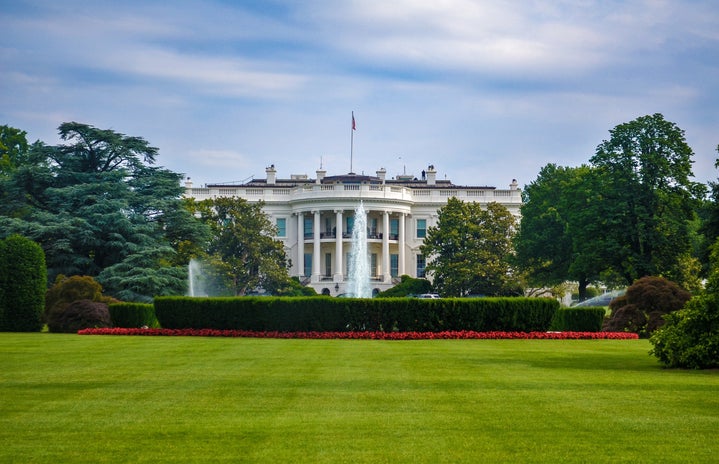The Midterms: an exciting set of elections a lot of us stayed up late last Tuesday night watching, waiting for something amazing to happen. Since Trump took office in 2016, we’ve seen a pretty large shift in American’s political opinions. Or maybe we’ve just seen a shift in Trump’s ratings. Without further ado, here’s a breakdown of what exactly happened (and what’s still happening) during the 2018 Midterm Elections.
Congress
With regards to Congress, the Senate stayed red while the House turned blue. Democrats are celebrating winning control of the House of Representatives after picking up more than 26 seats. So far, 412 of the 435 seats have been counted, 219 of those belonging to Democrats and 193 to Republicans.
One of the most nerve-racking Senate races in the country took place in Texas, where the Republican senator Ted Cruz narrowly kept his seat, fending off a challenge from Beto O’Rourke, a Democrat who captured widespread attention and grassroots donations from across the nation. This is important to acknowledge because Texas has historically been defined as a deep red state, and O’Rouke cracked Texas’ political foundation by losing by only a small margin of 220,000 votes out of 8.3 million.
Additionally, in my home state and voting district, one of Georgia’s “red” Senate seats flipped in a narrow win for the Democrats. Lucy McBath won an extremely close election against Republican incumbent Karen Handel, who only last year won a special election in the same Georgia district. McBath’s victory is particularly inspiring due to the fact that her son, Jordan Davis, was murdered in 2012 by a man at a Florida gas station. Since his death, McBath has tirelessly advocated for gun control, racial justice, and accurate representation–with this victory, it’s clear that she is more than talk when it comes to “being” the change you want to see.
What does this mean for America?
McBath was once thought to be a long-shot candidate even among members of her own party. Now, she will be the first nonwhite person to represent Georgia’s Sixth District, a portion of the state overwhelmingly filled with white and affluent voters. Georgia has also been defined as a deep red state for decades–most parts of Georgia still proudly fly the Confederate flag. Lucy McBath is working to reshape the white nationalist narrative of Georgia’s history into one that speaks of a safe, equal, and just place for all Georgians.
A Night of First’s For America
Ayanna Pressley: Massachusetts’ first black woman in Congress
Marsha Blackburn: First woman elected to the Senate from Tennessee
Jahana Hayes: Connecticut’s first black woman in Congress
Deb Haaland: America’s first Native American woman in Congress (1/2)
Sharice Davis: First Native American woman and openly gay member of Congress (2/2)
Veronica Escobar/Sylvia Garcia: Texas’ first Latinas in Congress
Rashida Tlaib/Ilhan Omar: America’s first Muslim women in Congress
Alexandria Ocasio-Cortez: America’s youngest woman ever elected to Congress (New York)
The Governorships
In Florida, Ron DeSantis, a Republican ally of President Trump, defeated Andrew Gillum, the Democratic mayor of Tallahassee, who had hoped to become the state’s first black governor.
In Georgia, the Republican secretary of state, Brian Kemp, held a lead on Stacey Abrams, a Democrat who was running to become the first female black governor in American history. Brian Kemp is also the Secretary of State, meaning he is in charge of voter registration and polling administration. On October 13, a coalition of advocacy groups sued Kemp after an AP report found that around 53,000 people, 70 percent of whom are black, had their voter registrations placed on hold in Kemp’s office.
Despite his racist agenda, Kemp is ever-so-slightly ahead with more than 50 percent of the vote, but Abrams refuses to concede, as not all absentee and provisional ballots have been counted. And over the past 48 hours, she’s been closing the gap. Under Georgia law, if no candidate gets a majority of the vote, the two top candidates must advance to a runoff election. We’re still waiting on conclusive results.
But Democrats picked up some major wins:
Tony Evers defeated Scott Walker, the one-time Republican presidential candidate and two-term governor in Wisconsin.
In Colorado, Jared Polis, a Democrat, became the first openly gay man to be elected governor in the United States, beating his Republican opponent, Walker Stapleton, the state treasurer.
Laura Kelly, a Democratic state senator in Kansas, defeated Kris W. Kobach, the secretary of state and a Trump ally.
Gretchen Whitmer, a Democrat won the governor’s mansion in Michigan, defeating the state’s Republican attorney general, Bill Schuette. And in Illinois, a hard-won fight between two ultra-wealthy candidates ended when J.B. Pritzker, a Democrat, and billionaire Hyatt Hotel heir, unseated the incumbent governor, Bruce Rauner.
To sum up, 100 women are now in Congress, including the first Native American, gay, transgender, and Muslim congresswomen.The blue wave also reached pretty far across the country with respect to governorships. These major wins indicate a huge shift in what America wants for their government. It is now more clear than ever that we, as a nation, want change.
But what does this mean for Trump and his administration?
Trump was very quick to put a positive spin on the results, calling them a “tremendous success” when in fact the Blue House will prove to be a very large obstacle for the Red Senate and his presidency. But, to generalize, the cultural, religious, social, and political divisions that plague America might only be deepening, as indicated by what most call our now “divided government.” However, the term divided government refers to the one-party control of the executive branch and a different party controlling the legislative branch. So our situation is a little bit more complicated with split control of the executive branch but same-party control of half the legislative branch, executive branch, and judicial branch.
We’ve seen a lot of incredible wins across the country during these elections that will help minorities, women, and lower-income families in the long run. Now we just have to hope that the blue wave will ride with continued strength into 2020 elections.



